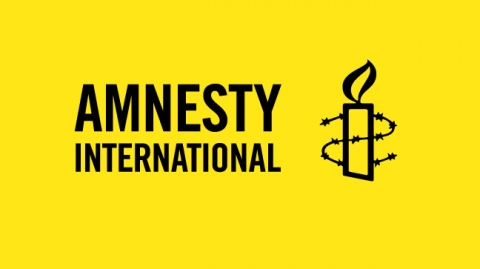Freedom from Torture
Civil Society Coalition against Torture and impunity in Tajikistan

Since July Amnesty International has received reports that at least four detainees, including a minor, have been subjected to further ill-treatment at the hands of law enforcement, security and prison officials. They had previously tried to report the ill-treatment they have suffered or witnessed.
According to credible reports by Tajikistani NGOs and lawyers, two persons (who cannot be named for security reasons) have been forced to withdraw their complaints. Two other individuals, currently in prison, informed an independent lawyer on 30 September that they fear for their lives. Officials in the Ministry of Internal Affairs, the State Committee of the National Security and the penitentiary system in Tajikistan are increasingly using torture and other ill-treatment not only to extract ‘confessions’, but also to silence those who dare to complain and speak out about their treatment, thereby ensuring impunity. These actions also lead to unfair judgments, as victims and witnesses are forced to incriminate themselves or others or refrain from testifying against officials and perpetrators.
Though many people in detention in Tajikistan who allege they have been tortured or ill-treated wish to stay anonymous, some continue to speak out. According to the independent lawyer Faisiniso Vohidova, several prisoners are currently at risk of retaliation for speaking out in court about abuses by prison officials. At one court hearing witnesses in the case requested protection from further reprisals; however the judge reportedly ignored the plea. On 30 September 2013 the lawyer was told by a number of prisoners, who had testified against a prison official, that they may be placed in solitary confinement for up to three months as punishment. The prisoners fear for their lives and worry that they may suffer the same fate as their former fellow detainee Hamza Ikromzoda, who died after being placed in a solitary confinement in 2012.
Please write immediately in Tajik, Russian, English or your own language to:
PLEASE SEND APPEALS BEFORE 12 NOVEMBER 2013 TO:
President
Emomali Rahmon
80 Rudaki Street
Dushanbe 734023
Tajikistan
Fax: +992 372 21 68 00
Email: mail@president.tj
Salutation: Dear President
Ombudsperson
Zarif Alizoda
7 Jalol Ikromi Street
Dushanbe 734025
Tajikistan
Fax: +992 372 21 79 69
Email: info@ombudsman.tj
Salutation: Dear Mr Alizoda
And copies to:
Minister of Foreign Affairs
Hamrokhon Zarifi
42 Rudaki Street
Dushanbe 734051
Tajikistan
Fax: +992 372 21 02 59
Email: info@mfa.tj
Salutation: Dear Minister
Over the last two years, Tajikistan has adopted a series of measures aimed at eliminating torture and other ill-treatment. These include amending the Criminal Code to expressly make torture a criminal offence; developing guidelines for judges in cases of alleged or suspected torture or other ill-treatment; adopting recommendations for prosecutors on investigation of allegations of torture; and in March 2013, adopting a 2013-2015 National Implementation Plan concerning the 106 recommendations Tajikistan accepted during the UN Human Right Council’s Universal Periodic Review (UPR).
While noting these positive commitments, Amnesty International continues to receive reports of torture and other ill-treatment in all types of detention facilities, particularly in pre-trial detention, indicating that this problem remains persistent in Tajikistan. NGOs and lawyers in Tajikistan registered over 96 complaints about torture and other ill-treatment between 2010 and 2012. After his visit to Tajikistan in May 2012, the UN Special Rapporteur on torture reported that “pressure on detainees, mostly as a means to extract confessions is practised in Tajikistan in various forms, including threats, beatings (with fists and kicking but also with hard objects) and sometimes by applying electric shocks”.
Amnesty International is also concerned about frequent reports of deaths in custody. The prison authorities often claim that these are suicide cases, while families of the deceased allege that their relatives were tortured or otherwise ill-treated by prison officials. The number of reports of deaths in custody has increased since June 2012.
In September 2012, 27-year-old Hamza Ikromzoda died in the prison No. 3/1 in Dushanbe, allegedly after torture. Former cellmates who alleged that they had witnessed his death were themselves reportedly subjected to torture and other ill-treatment. Of the at least 50 prisoners who were transferred to high security prison colony No. 3/3 in Khujand from Dushanbe in November 2012, several claimed to the media that their transfer was to punish them for speaking out about the death of Hamza Ikhromzoda. Other witnesses subsequently withdrew their statements after saying they had been harassed and threatened. Their lawyers have also had difficulty visiting their clients at the new location. In May 2013, only one prison official was found guilty of negligence in relation to the death of Hamza Ikhromzod and sentenced to five and a half years in prison.
In December 2012, 30 year-old Akmal Muzaffarov was reportedly stopped by plain clothed police officers in Isfara. When he refused to show his documents he was taken to a police station, beaten and forced to drink 200 ml of vodka. The next day he was released after being warned not to complain about his treatment. He was diagnosed with a broken leg and other injuries and his family lodged a complaint with Sughd Regional Prosecutor’s Office which opened a criminal investigation under Article 143.1 (torture) of the Criminal Code into the actions of the Head of Isfara Ministry of the Interior Investigations Department. Prior to the opening of criminal investigations, the family reported to the press that they had received anonymous phone calls with threats that they should withdraw their complaint. The official concerned has not been suspended from duty during the police investigation, although he is under travel restrictions. The case is currently pending examination by a court in Isfara.
In conjunction with lack of confidence in the impartiality of the police, fear of reprisals and a lack of an effective witness protection program, most investigations into the allegations of torture remain ineffective and fail to lead to the identification, arrest, trial and conviction of the perpetrators.